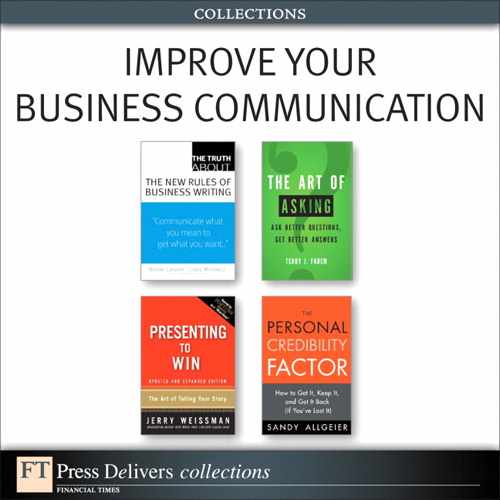Truth 23. Good subject lines say, “open sesame”
Simply put, the purpose of a subject line on an e-mail is to get the recipient to open and read the message. Like a good lead, the subject line should attract the reader and get him or her involved in the message.
In a business setting, it’s best to stay away from anything that can be construed as “cutesy,” suggestive, bold, or nasty. The trick is to come up with subject lines that tell the story directly, clearly, and with as few words as possible. Here are some examples, good and bad, taken from the authors’ mailboxes:
• Winners
Case Study PDF on Server Ready to Proof
Chapter 11 Needs Two More Examples
Speaking Opportunity Offered to Your Club
More Information for ASTD Conference Attendees
IT Dept. Progress Report, June 30
Referred You to Potential Client, Collegiate Institute
IABC Nov.18 Meeting Location Changed
• Second Place
Shipping Dept. Is Low on Manila Boxes
Three Editing Questions on Article
Writing Tips for Communicators
Info for Members
Add Items to Agenda
Sept. 24 Query
Meeting Notes
Need a Reference
Need Immediate Answer
• Losers
Reply #2
Yet Another Question
Advertorial Inquiry
Get Me Off This List!
Web Site
News from Ralph Jackson
Started a New Biz
Good Day
Need Your Help
Don’t Miss This Opportunity!!!
In considering these subject lines, you may notice a few commonalities:
1. The winners tend to be strong, concise, direct, and self-explanatory.
2. Those in second place need additional information for the recipient to get a good grasp of what the e-mail contains. In each case, the recipient is left saying, “What does that mean?”
3. And the losers are in that boat because they say too little or too much, forcing the recipient to make a judgment call on whether the message is spam or a useful bit of information. If, for example, you don’t know who Ralph Jackson is, you probably will press Delete quickly.
Thinking through subject lines—Because e-mails are forever, taking the time to make yours work is time well spent. With subject lines, this means making sure the subject is clearly identified and will pull the reader into the body of the e-mail. The urge to press Delete is strong, so don’t give your recipients a chance to do it. (Of course, if the e-mail is in fact irrelevant to recipients, a clear subject line won’t help you.) If what you’re communicating is important or even urgent, get that across right up front but be specific: “Important matter” doesn’t work; “Important meeting for accounting staff” does.
There are additional reasons to take trouble with subject lines:
• Finding specific e-mails—Good subject lines make it easy for people to find e-mails again when necessary, which can be quite often. Don’t be surprised if someone actually thanks you for this someday—how often do you feel frustrated trying to retrieve an e-mail from a co-worker who customarily labels them all “Greetings”?
• Change the subject line of the thread if the topic changes—A “thread” is the sequence of e-mails on one topic that may loop back and forth between sender and recipient several times. If the topic changes in, say, the fourth round, change the subject line. It can be maddening to search a thread labeled “2010 Projections” for a reference to new-construction costs that you know is in there somewhere.
• Topics and legalities—In business, e-mail subject lines should serve as specific headings for the topics they contain. There are even legal reasons. Both subject lines and content are used during the discovery phase of court cases to find and identify companies’ or executives’ unethical or illegal behaviors. If your subject line can be misconstrued, there may be unintended consequences.
And one more thought: If you have an e-mail address that’s not professional sounding, change it. Receiving a business e-mail from “Dis-a-kitty” or from “imbozo32” will not exactly strike the recipient as a business communication. Your e-mail may even wind up in the company’s spam filter before it reaches the intended recipient. Although corporate, educational, and scientific e-mail addresses use a business-type format, some independent business owners may be more free spirited—often to their own detriment.
Most professional-looking is to use an address with a domain name, which is easy to obtain even if you don’t have a Web site.
